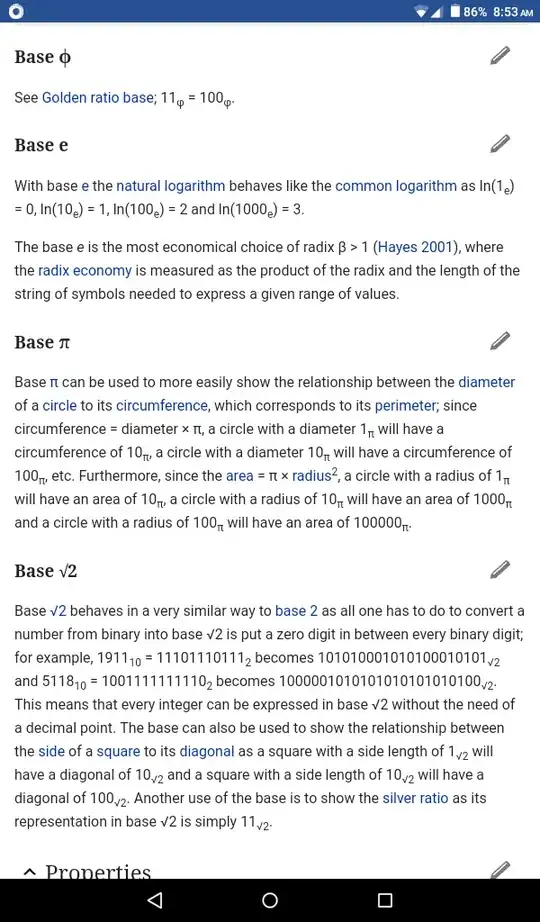Imagine if we used a base $\pi$ number system, what would it look like? Wouldn't it make certain problems more intuitive (eg: area and volume calculations simpler in some way)?
This may seem like a stupid question but I do not remember this concept ever being explored in my Engineering degree. Surely there is some application to the real world here.
I am interested in answers that demonstrate which problems would become more elegant to represent and compute. I am also interested in any visualizations that leverage the meaning of that scale. Never-mind a logarithmic scale, what would a $\pi$arithmic scale be and what would simple areas on it mean?
From the comments, I realise that the normal representation of numbers is flawed (or difficult to use) for this idea, so maybe it's worth modifying it slightly. eg:
let:
$[1] = 1.\pi^0 = 1$
$[2][1] = 2.\pi^1 + 1.\pi^0 = 2\pi + 1$
$[2.3][1] = 2.3 . \pi^1 + 1.\pi^0 = 2.3\pi + 1$
$[1][2][3] = 1.\pi^2 + 2.\pi^1 + 3.\pi^0 = \pi^2+2\pi+3 $
